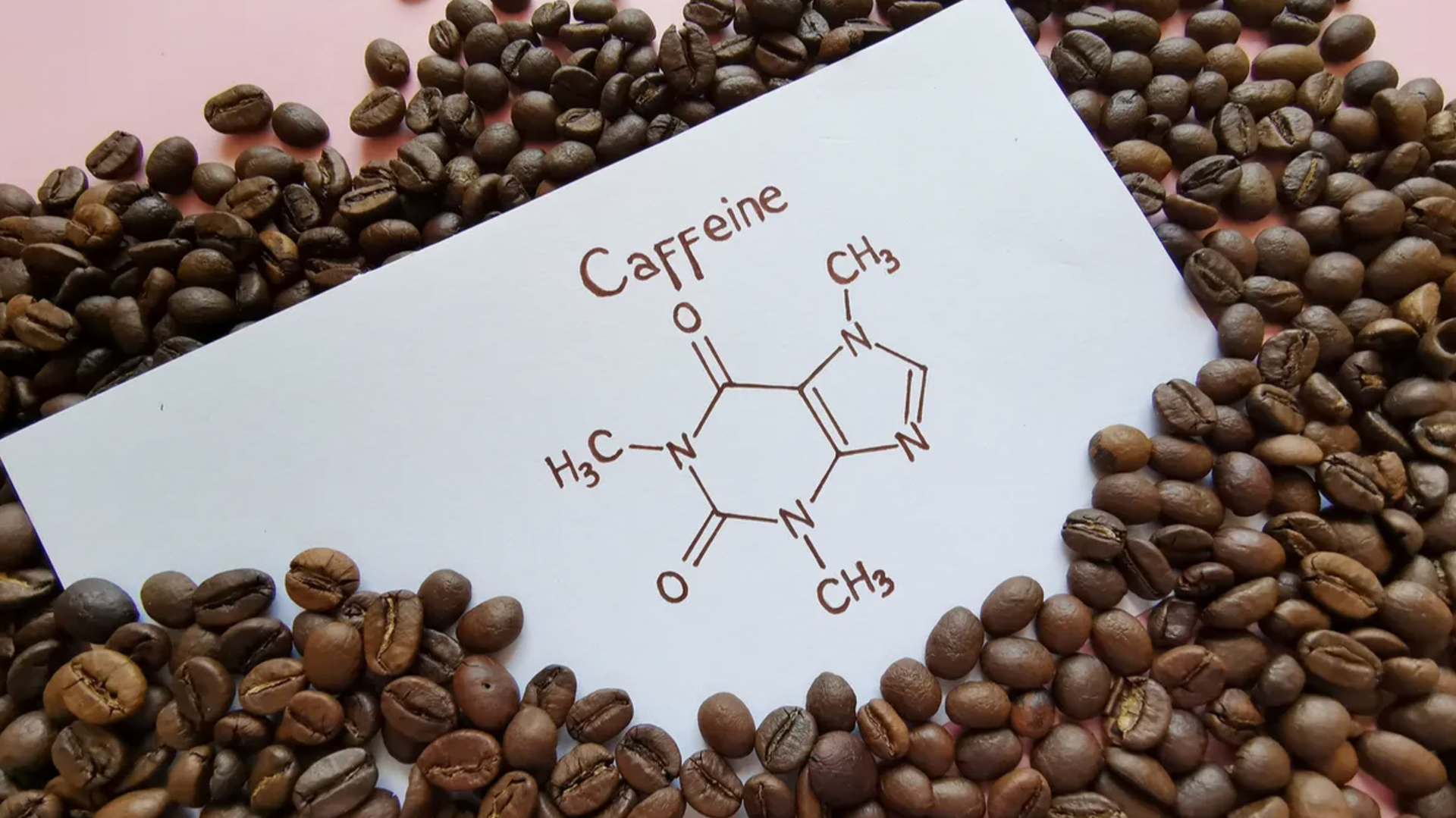In its native Southeast Asia, kratom has been used for centuries. But it’s only just begun making waves in the United States. Since this plant is relatively new to Westerners, there are still a lot of questions surrounding Kratom and its effects.
Some of kratom’s most well-known effects are its ability to make you feel energized, focused, and lightly euphoric — three things caffeine is already famous for. But can kratom really replace your daily cup of coffee? We’ll dive into the similarities and differences between kratom and caffeine in this article.
What is kratom?
Kratom is a plant native to Southeast Asia. Its leaves are rich in the alkaloids mitragynine and 7-hydroxy mitragynine, which produce effects ranging from relaxing to energizing.
Kratom leaves are available in many different forms. Capsules are one of the most popular, especially with people who don’t necessarily like the taste of kratom. Want something a little fruitier? Koi also offers Kratom Gummies, available in Berry Punch, Sour Lemon, or Strawberry Apple flavors.
There are four different types of kratom, defined based on the color of veins in the leaves — red, green, white, or yellow. Each vein color has a different alkaloid profile and produces different effects. The most energizing are green and white.
How Kratom Works as a Energy Source
If you want to try kratom for its energizing effects, go with green or white vein. Green vein kratom has a very balanced alkaloid profile, meaning it typically offers equal relaxing and energizing effects. But if you want to replace your morning coffee completely, we recommend white vein kratom. White vein has the most similar effects to caffeine.
Whatever vein you choose, all kratom works the same once it’s in your body. The alkaloids bind to opioid receptors in your brain and central nervous system, usually delivering either calming or stimulating effects (depending on the alkaloid profile) within 30 minutes.
How Caffeine Works in the Body
Caffeine works within your central nervous system. It can make you feel more awake and alert, and it's been shown to improve your attention span.
In your body, there’s a compound called “adenosine.” Adenosine is responsible for slowing nerve activity, which can lead to tiredness and fatigue. Caffeine binds to your adenosine receptors, blocking adenosine’s ability to do this — and speeding up nerve activity in the process. You’ll start to feel the effects of caffeine within minutes after it enters your body.
Energy Boost: Kratom vs Caffeine
If you’re thinking about trading in your daily cup of coffee for one of Koi’s fruity-flavored Liquid Kratom Shots, you probably want to know how the energy boost compares between kratom and caffeine.
Let’s dive into the similarities and differences between how kratom and caffeine affect your energy levels.
How Each Affects Energy Levels
Both kratom and caffeine can increase your energy levels, making you feel more alert and motivated. But because these are two completely different compounds, there are some important differences in the ways they affect your energy levels.
Most people say that, compared to caffeine, kratom offers a smoother, less jittery experience. Kratom’s effects depend mainly on serving size, and a small serving of kratom is usually enough to provide long-lasting energy. In larger servings, kratom’s effects tend to be more calming and relaxing.
Caffeine, on the other hand, always offers energizing, stimulating effects. If you have too much caffeine, you can get jittery and restless.
The Duration of Effects
Caffeine’s energizing effects kick in almost immediately. Kratom’s are still fast-acting, but it can take up to 30 minutes to feel the full effects.
After drinking a cup of coffee or tea, you’ll probably feel more awake and alert for 3-6 hours. But it’s common to feel an energy crash as the caffeine begins to wear off. Kratom’s effects don’t last as long (typically 2-5 hours), but most people don’t get the same crash as they do with caffeine as kratom starts to wear off.
Kratom vs Caffeine for Focus and Concentration
Another shared benefit of kratom and caffeine is better focus and concentration. Kratom mainly offers this through boosting productivity and improving mental clarity, while caffeine offers it through increased alertness and situational awareness.
Here’s how kratom and caffeine impact focus and concentration.
How Kratom Enhances Focus
While kratom might be new to people in the U.S., it’s been used in its native countries for years. One of the main reasons people in Southeast Asia have used kratom in the past is to boost productivity.
In small doses, kratom has been shown to improve mental clarity. Some people also say it can calm a busy mind, which is a key part of being able to focus on the task at hand.
Caffeine’s Impact on Concentration
One of caffeine’s main effects is increased alertness and awareness, which are two essential parts of feeling focused.
Caffeine stimulates the central nervous system, making you more aware of your surroundings. This can make you feel more productive, but increased productivity can quickly turn to overstimulation.
Comparing Their Effects on Mood
When you feel more energized, you're usually in a better mood. In addition to a good energy boost, both kratom and caffeine can offer mood-boosting properties to help you get through a hard day.
Below, we’ll compare the different ways that kratom and caffeine can improve your mood.
Kratom's Mood-Boosting Properties
Kratom has been shown to have mood-boosting properties. But these inherent properties aren’t the only way kratom can improve the way you feel.
In larger servings, many people say kratom helps them get more restful sleep. A good night’s sleep can go a long way in not only improving the way you feel but also reducing stress and increasing productivity.
Caffeine’s Role in Mood Elevation
If you’ve ever been grumpy first thing in the morning, you already know how big of a mood-boost that first cup of coffee can be.
Caffeine’s mood-elevating effects come from its ability to make you feel more awake and alert. Everyone’s in a better mood when they feel well-rested, and a cup of coffee or energy drink can do just that.
However, drinking too much caffeine can come with irritability, restlessness, or anxiety — and those three things definitely won’t make you feel like you can take on the world.
Choosing the Right Option for Your Lifestyle
From more energy to a better mood, there are quite a few benefits you can get from either kratom or caffeine. But even after comparing the effects, you might still be wondering which is best for your lifestyle.
Here are a few things to consider as you decide whether kratom or caffeine is the better option.
Consumption Form
Most people get their caffeine through caffeinated beverages, like coffee, tea, energy drinks, and even soda. Some people take caffeine pills for a quicker option, but beverages are by far the most popular way to consume caffeine.
Kratom, on the other hand, can be consumed in a variety of ways. From Kratom tea and liquid shots to capsules, gummies, and tablets, it’s easy to get your daily serving any way you want it.
Energy-Boosting Effects
Kratom typically kicks in 10-30 minutes after you take it, and the effects can last for anywhere from two to five hours. Caffeine kicks in just a few minutes after it enters your body, and you’ll usually feel that energy boost for three to six hours.
The energy-related effects of caffeine and kratom (especially white vein kratom) are pretty similar. But, kratom has one major advantage — while there can be a big energy crash as caffeine begins to wear off, most people report a smooth transition as kratom makes its way out of their systems.
Other Effects
Apart from increased energy, there are a few other effects you can expect from both kratom and caffeine. Both have been shown to help you focus and concentrate, as well as improve your mood.
But, there is one thing kratom is known for that caffeine isn’t — relaxation. Many people rave about Kratom’s calming, sleep-improving benefits. When you’re well-rested, you wake up in a better mood and have an easier time focusing.
Caffeine, on the other hand, can do the opposite. If you have too much, it could begin to disrupt your sleep cycle.
Is It Safe to Mix Kratom with Caffeine?
In the right quantities, mixing Kratom and caffeine is completely safe — it can actually come with some unique benefits!
On its own, kratom has a bitter taste. That’s why most people prefer flavored products, like our Kratom Tablets and Kratom Gummies. But if you already have powdered kratom, adding it to a cup of coffee or tea can be a great way to mask the flavor.
Mixing kratom and coffee also helps to create more balanced effects. Caffeine on its own can produce some jittery, overstimulating feelings, but a small serving of kratom can counteract it beautifully.
The most important thing to remember when combining kratom and coffee is to start with a low serving and stay hydrated. If you have too much of the concoction, you might get a stomachache.
Summary
Kratom and caffeine are both plant-based compounds known for their energizing, focus-enhancing effects.
From increased productivity to a better mood, people report similar results after using either supplement.
But while caffeine can come with restlessness and jitters in higher quantities, most people say that kratom offers a relatively smooth experience with no energy crash.

